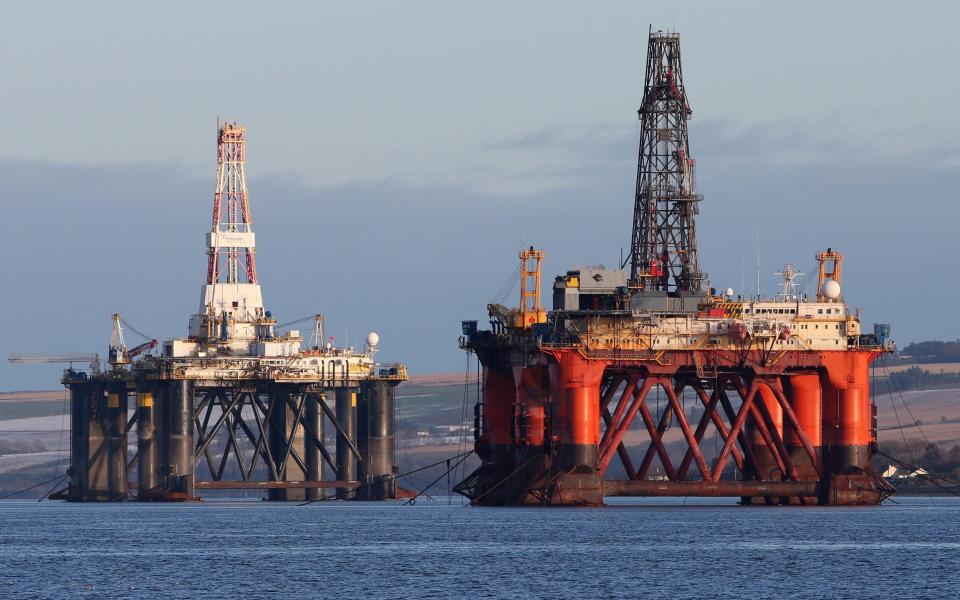Sunak and Starmer undermining Britain’s energy security, says oil company

Rishi Sunak and Sir Keir Starmer are destroying the offshore oil industry and undermining Britain’s energy security, a leading oil and gas company has said.
David Latin, the chairman of Serica Energy, claimed that windfall taxes and political opposition had made Britain the most hostile country he had ever operated in outside of war zones.
Mr Latin said: “I have been involved in this industry for more than 30 years and have worked all over the world.
“Other than when I was responsible for a company which had significant assets in a war zone, I have never encountered a [political] situation which was so challenging when it comes to making investment decisions, and planning for the future more generally, as it is in the UK at present.”
Mr Latin said he was moving investments out of UK waters because the taxes and regulations imposed on the industry were too onerous and kept changing.
State of constant uncertainty
His comments, in a speech released in advance of Serica’s annual meeting today, were focused partly on the Conservative government, which first imposed a windfall tax in the spring of 2022, and later increased the rate and extended its duration.
These multiple changes, said Mr Latin, left the industry in a state of constant uncertainty and destroyed investor confidence.
Those problems were compounded by Labour, which has pledged to raise the tax again while also stripping the industry of the investment allowances should it be elected.
Such allowances, which allow companies to offset investment against profit, are common to all businesses, so removing them from a single industry would set a major precedent.
Mr Latin said that oil and gas producers already pay tax at an overall tax rate of 75pc, three times that charged to UK companies in other industries.
He said: “This is despite the period of so-called “windfall” conditions for UK producers having long passed, with oil and gas prices having returned to historically normal levels.
“Yet in the current general election, no reduction to match the circumstances is proposed by the Conservative Party and yet another increase in the tax rate to 78pc is proposed by the Labour Party.
“Hydrocarbons are not intrinsically evil. They have allowed our civilisation to escape the bounds of subsistence.
“Welcome alternatives are being developed but we – not least in the UK – will continue to depend on hydrocarbons for decades to come.
“Surely it is better to produce these responsibly under world leading regulatory oversight in this country, with all the attendant benefits in jobs and tax revenues, than to import hydrocarbons which often arrive with a higher environmental and social cost than domestic production.”
‘Jobs will be lost’
Mr Latin warned that the policies and taxes imposed by UK politicians would rapidly lead to falling flows of oil and gas.
He said: “Oil and gas continue to flow only when the main supply of investment stays open. Without it, the flow dries up. Even existing oil and gas fields decline and need continuous investment to maintain production.
“Without investment fields will start to shut in and there will be a domino effect in the interconnected and interdependent UK North Sea infrastructure. … Oil and gas consumption in the UK will be reduced not one iota, but UK jobs will be lost, imports increased, overall emissions raised, tax receipts for the Exchequer actually reduced, and the country’s security weakened.”
He also warned that the recent Supreme Court decision requiring planning authorities to take account of downstream emissions in the approvals process for oil and gas fields would also drive the industry out of UK waters.
Mr Latin said: “The choice is not between UK oil and gas or no oil and gas; the choice is UK oil and gas or foreign oil and gas. As was stated in the Supreme Court decision, emissions respect no borders.”

 Yahoo Finance
Yahoo Finance 